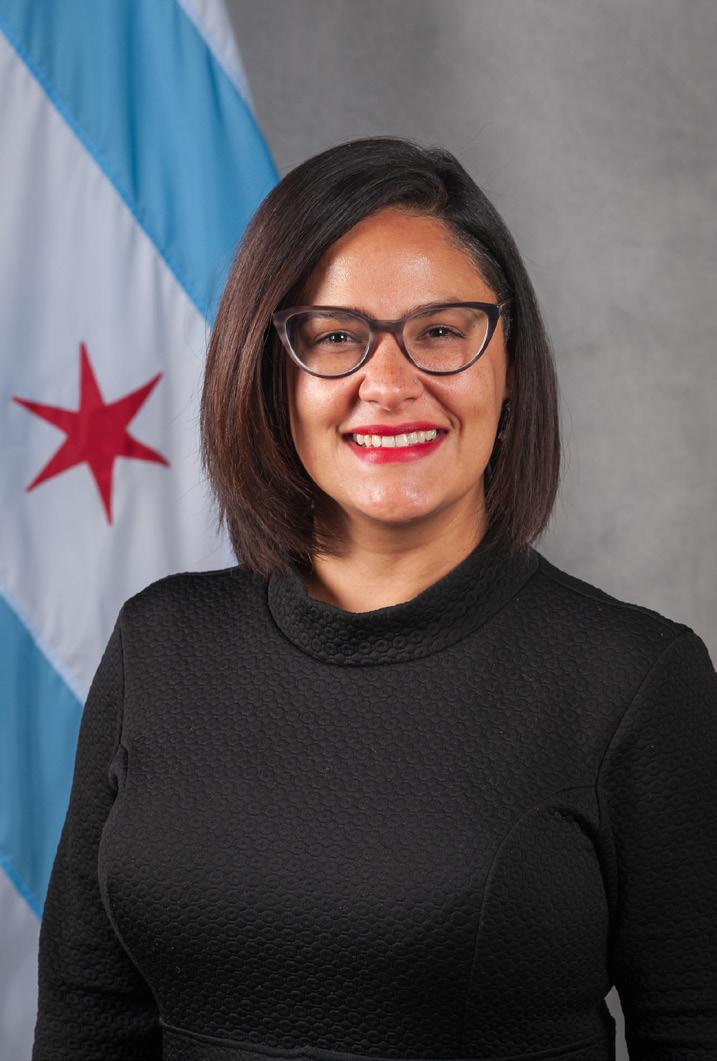
2 minute read
'Treatment, Not Trauma' Order Placed Before the Chicago City Council
by Suzanne Hanney
Calvin, a South Side consumer of mental health services, shared his experience with police during a press conference organized by a group seeking a response program that would be run out of Chicago’s five remaining mental health centers, independent of the Chicago Police Department.
Calvin had just moved into a new apartment and broken off a friendship, when he called an emergency line that had helped him twice before.
“At 5, I had a stroke in my head that took part of my learning brain, so I have to do more than other people to get things straight,” Calvin told the September 29 online press conference. “I was calming down, just trying to get a laugh out of the dude. I asked him, 'What's the definition of suiside?' He kept me on the phone talking real cool, and 20 minutes later police was knocking at my door."
Despite Calvin’s protests that he felt all right, police told him he couldn’t stay home since they had made the trip. But once at a hospital, Calvin called another mental health provider. “They got me in here for no reason!” he told the woman, who calmed him down when she said he could be held for three days at most.
Ald. Rossana Rodriguez Sanchez (33rd ward) introduced the Treatment, Not Trauma order to the Chicago City Council on September 9. “It’s moving a little bit away from always having police respond…rethinking what we call public safety,” by having behavioral health experts respond to a mental health crisis. Nationwide, the majority of police calls are not violence-related and in Chicago they stem from homelessness, substance abuse or mental health, she said.
“Nationally, people with untreated mental health are 16 times more likely to be killed by law enforcement,” said Ald. Carlos Ramirez-Rosa, (35th ward) co-sponsor of the proposed order. Besides the lives that are lost, lawsuit settlements cost the city.
The council order would seek to determine how much law enforcement money could be reallocated toward mental healthbased treatment – “not stun guns and handcuffs, but the tools of
a social worker” -- in the 2021 Chicago budget, Ramirez-Rosa said. They will work with the budget director, the Chicago Department of Public Health (CDPH) and the Office of Emergency Management and Communications (OEMC), Rodriguez Sanchez said.
Badonna Reingold, LCSW, vice chairman of the Community Mental Health Board of the CDPH, which oversees its remaining five mental health clinics, said the program would be housed in them. Six more mental health centers were closed and another privatized in 2012.
The response program would operate 24/7, usually with a paramedic and a social worker -- no police until deemed necessary, officials said. The phased development plan would begin over the next year with existing staff and could be expanded with new hires.
Advocates would be seeking transparency and accountability in this expansion, because the number of calls managed by each mental health center would demonstrate demand, said Dr. Arturo Carrillo, LCSW. Carrillo is director of health and violence prevention for the Brighton Park Neighborhood Council and head of the Collaborative for CommunityWellness, a citywide coalition of community groups, mental health advocates, and neighborhood leaders that called the press conference.
Carrillo said that 3 out of 4 Chicagoans live in communities with .2 therapists for each resident, while the remaining 25 percent have access to more than four therapists each. “This has led to community residents dealing with continuing crisis without proper support to prevent trauma. Meanwhile, they are overpoliced and the largest mental health provider is Cook County Jail.”








